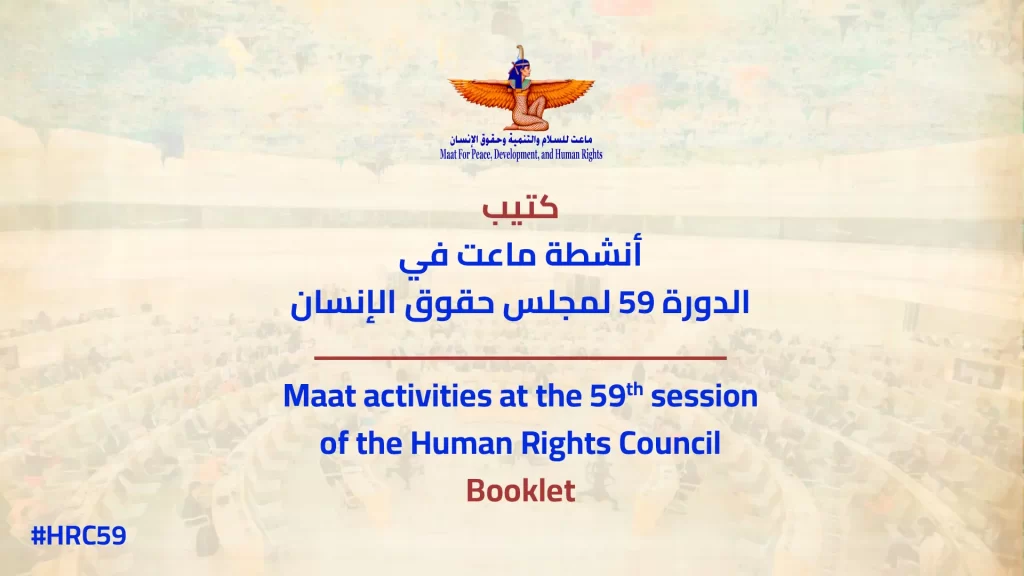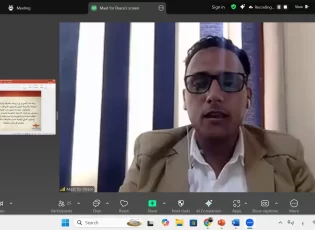Okeil: It is important to review the Egyptian legal framework for refugees
Mariam Salah: Establishing a national mechanism for refugees in Egypt has become an urgent necessity
Maat for Peace, Development and Human Rights confirmed that Egypt is at the forefront of the countries in the Middle East and Africa that receives refugees. However, it did not use the refugee file to achieve political or economic gains or as bargaining chips in its foreign policy. Despite the increase in the number of refugees officially registered by the United Nations High Commissioner for Refugees in July 2021, which is estimated at about 257,000 refugees in Egypt, the actual number recorded by the Egyptian government is much more, as Egypt hosts about 6 million registered and unregistered refugees and migrants of various nationalities.
This was explained in a new study issued by Maat for Peace, Development and Human Rights, published on the sidelines of the 69th session of the African Commission for Human and Peoples' Rights, entitled: "The Features of the Egyptian Policies in Containing Migrant flows Over the Past Decade." The study discussed the policies of the Egyptian government in containing the crisis of refugees from a legal and institutional perspective, as well as the status of refugee rights in Egypt in accordance with the 1951 Refugee Convention, and the challenges facing the refugee file in Egypt.
In this context, Ayman Okeil, president of Maat, referred to the successive efforts of the Egyptian government regarding the legislative framework related to refugees, and which is based on the 1951 Refugee Convention, especially during the past decade, when the Egyptian parliament introduced many legislative amendments to the Egyptian law related to refugees. However, despite the inclusion of the Egyptian law for some refugee rights, there are legislative gaps that require more efforts by the current parliament, to review and update these laws and ensure more rights for refugees to meet their needs, including their residency rights, the right to housing, the right to education, the right to health care and work, as provided in the Universal Declaration of Human Rights, as well as the 1951 Refugee Convention, given the fact that they are one of the most vulnerable groups that should be given special legal attention.
On the other hand, Mariam Salah, a researcher at the African Affairs and Sustainable Development Unit at Maat, confirmed that in the absence of an Egyptian governmental body or agency concerned with refugee affairs, and based on the memorandum of understanding signed between Egypt and the United Nations High Commissioner for Refugees, the Egyptian state has allowed the UNHCR to deal with all refugees-related issues including identification, registration, and assistance. The researcher, therefore, stresses for the need to a national committee or governmental body concerned with refugee affairs in line with Egypt's international obligations.
Notably, Africa is among the issues of concern to Maat for Peace, Development and Human rights, being a member of the General Assembly for the Economic, Social & Cultural Council (ECOSOCC) of the Africa Union (AU). Moreover, Maat serves as an Observer in The African Commission on Human and People’s Rights (ACHPR) and as a Northern African Coordinator in the major Non-Governmental Organizations (NGOs) in Africa of the United Nations Department of Economic and Social Affairs (UN DESA).

 |
 |
shortlink: https://maatpeace.org/en/?p=34128











